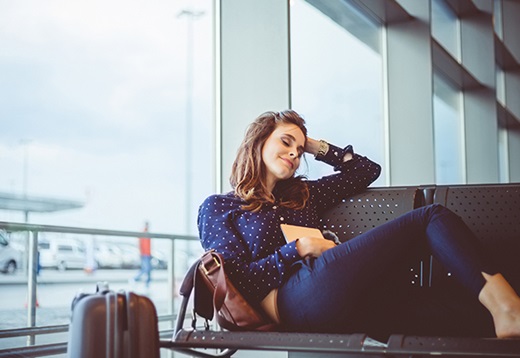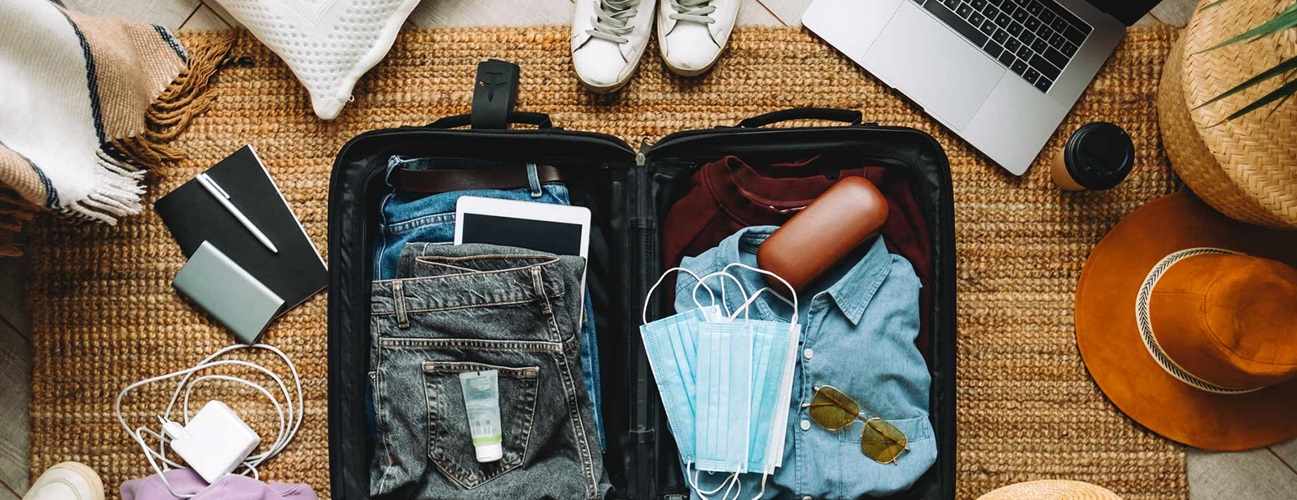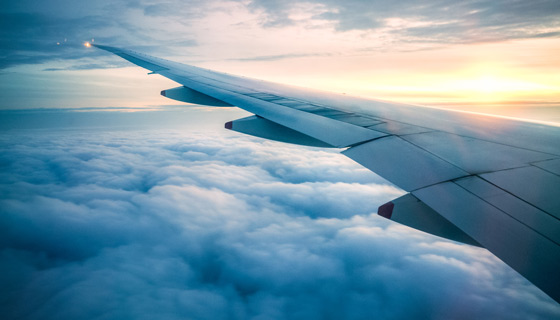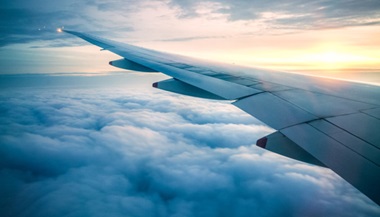6 Tips for Better Sleep When You Travel
Nothing can upset your sleep schedule quite like stepping on an airplane and jetting off to a foreign land — even if it’s for fun.

“All of us have an optimal period when our bodies want to sleep — typically around 11 p.m. to 7 a.m. This is called your ‘circadian window,’” says Charlene Gamaldo, medical director of the Johns Hopkins Center for Sleep . “And any time you travel, particularly across two or more time zones, it ends up wreaking havoc on your circadian window,” she says.
Whether you’re traveling for work or for play, here are a few tips to keep sleep disruption to a minimum.
Sleep strategically.
Three days before you’re scheduled to travel, begin moving your bedtime an hour earlier (or later, as appropriate) than you normally would. Add another hour the second evening, and a third hour on the third day. Gamaldo notes that it takes one day per time zone for your body to adjust, so planning ahead can help ease the transition.
Go with the local flow (usually).
After you land, try to sync up with the local schedule. “If you’re landing when people are awake in the middle of the day, that’s what you want to do, too. Sleep as much as you can on the plane,” she says. “If you’re going to be landing at night, do your best to stay awake on the plane and sleep at your destination.”
Abide by the two-day rule.
“If you’re going to be staying somewhere fewer than two days, try and keep to your own schedule. By the time your body adapts, it’ll be time to come home,” she says. In these cases, she suggests requesting that any obligations or meetings happen during the equivalent of your peak waking hours at home whenever possible.
Let there be light.
If your flight touches down first thing in the morning as you travel east, bring along a pair of sunglasses to minimize light exposure, Gamaldo suggests. It’s preferable to get maximal light exposure in the late morning and early afternoon, which shifts your rhythms closer to your destination’s time zone.
“The goal is to recalibrate the clock so that it’s closer to bedtime at your destination,” she says. If you’re traveling westward, which is less disruptive, aim for light exposure in the early evening. Eat outdoors or go for a walk to push your rhythm a bit later.
Move your body.
When you’re ready to begin the day, Gamaldo recommends taking a warm shower and heading outside for exercise to signal your body that it’s time to get going. “Increasing core body temperature is a trigger for your circadian rhythm,” she says.
Take melatonin.
Natural levels of the hormone melatonin typically rise about two hours before bedtime, preparing your body for rest. If you’re traveling, your body might need a little nudge. Melatonin is available as a nonprescription sleep aid in doses of up to 10 milligrams.
It helps your body produce natural melatonin at the appropriate time when your schedule is off-kilter. Gamaldo cautions that melatonin is not a cure-all for jet lag, however. Studies indicate that light exposure during the day is more effective for resetting your internal clock.
Should I take over-the-counter sleeping pills when I travel?
Many over-the-counter medications have a long half-life, which means they linger in the body. This can leave you feeling groggy the next day, Gamaldo warns. Use sparingly, especially if you take anti-anxiety medications to fly, because those drugs also cause sedation.






